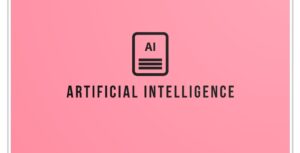Defining Artificial Intelligence
Artificial intelligence refers to the simulation of human intelligence in machines, enabling them to perform tasks that typically require human cognition. This encompasses a spectrum of capabilities, ranging from basic automation to complex problem-solving and decision-making processes. Artificial Intelligence systems are designed to analyze data, recognize patterns, learn from experience, and adapt to changing circumstances, mimicking the cognitive functions of the human mind.
The Evolution of AI
The journey of AI can be traced back to the mid-20th century when pioneers like Alan Turing laid the theoretical foundations for intelligent machines. Over the decades, advances in computing power, algorithms, and data availability have propelled AI from theoretical concepts to practical applications. Key milestones include the development of expert systems, neural networks, machine learning, and deep learning techniques, each contributing to the expansion of AI capabilities.
The Utility of Artificial Intelligence
The usefulness of Artificial Intelligence transcends traditional boundaries, permeating diverse sectors and disciplines. Below are some of the key domains where AI is making a significant impact:
1. Healthcare: AI is revolutionizing healthcare by enhancing diagnostic accuracy, personalized treatment, and patient care. Machine learning algorithms analyze medical imaging, genetic data, and clinical records to assist in disease detection, drug discovery, and treatment planning. Virtual health assistants provide patients with personalized advice and support, improving accessibility and efficiency in healthcare delivery.
2. Finance: In the financial industry, AI algorithms analyze vast amounts of data to identify market trends, manage risks, and optimize investment portfolios. Automated trading systems execute transactions at lightning speed, leveraging predictive analytics to capitalize on market opportunities. AI-powered chatbots provide customer support, streamline banking operations, and detect fraudulent activities, safeguarding financial institutions and their clients.

3. Education: AI is reshaping the landscape of education by personalizing learning experiences, automating administrative tasks, and facilitating remote education. Adaptive learning platforms tailor educational content to individual student needs, optimizing comprehension and retention. Intelligent tutoring systems provide real-time feedback and guidance, enhancing student engagement and academic performance. Virtual classrooms and online learning platforms enable global access to quality education, bridging geographical and socioeconomic barriers.
4. Transportation: Autonomous vehicles represent a paradigm shift in transportation, promising safer, more efficient, and sustainable mobility solutions. AI-powered navigation systems analyze sensor data and environmental factors to navigate roads, avoid obstacles, and anticipate traffic conditions. Ride-sharing platforms optimize route planning and resource allocation, reducing congestion and emissions in urban areas. Smart infrastructure and traffic management systems leverage AI to optimize transportation networks, enhance safety, and minimize travel times.
Also Read – https://skrnews.com/supreme-court-of-india/
https://naukribazaar247.blogspot.com/
5. Manufacturing: In the manufacturing sector, AI-driven automation technologies optimize production processes, improve product quality, and reduce operational costs. Robotic systems equipped with machine learning algorithms perform intricate assembly tasks with precision and efficiency. Predictive maintenance systems monitor equipment performance and detect anomalies, minimizing downtime and maximizing productivity. AI-powered supply chain management tools optimize inventory management, demand forecasting, and logistics operations, ensuring timely delivery of goods and services.
6. Entertainment: AI is transforming the entertainment industry by creating immersive and personalized experiences across various media platforms. Content recommendation algorithms analyze user preferences and viewing habits to suggest relevant movies, music, and other forms of entertainment. Virtual reality (VR) and augmented reality (AR) technologies enable interactive storytelling and gaming experiences, blurring the lines between reality and fiction. AI-generated content, such as music compositions, artwork, and literature, challenges conventional notions of creativity and artistic expression.
